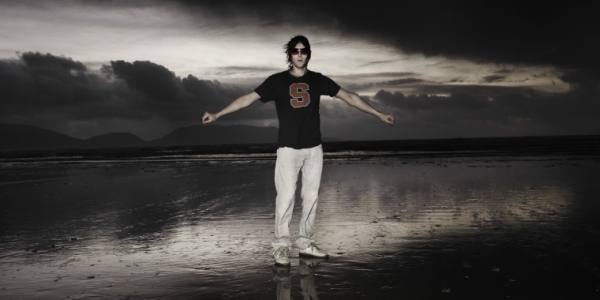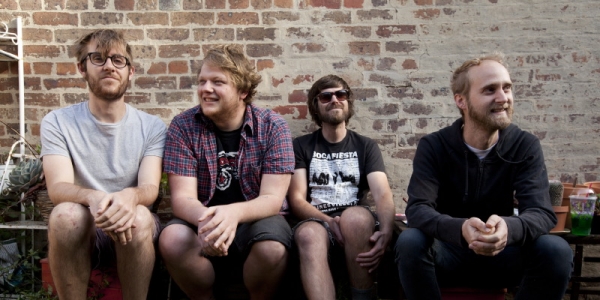“I felt really disconnected to the album; it feels like it was made by someone else,” Pierce says. “I wanted to make what I call a pop album and what I meant by that is I wanted the tracks to be succinct songs, traditional in their form. I feel so much better playing them live because I finally feel a part of them now. When you’re making a record you’re trying to pin the thing down, you’re trying to say, ‘This is how these songs are gonna last forever’ and that’s such a tall order at any rate.”
Essentially staying true to the psychedelic, space rock sound that he has honed over the many years since his first band, Spacemen 3, (Pierce is famous for the motto “Taking drugs to make music to take drugs to”) he is brutally honest about the flawed idea of musicians thinking they’re constantly breaking new artistic ground. “When you make music it’s almost impossible to make completely new music and you end up creating something that sounds similar to the things you love,” he says. “I’m very, very wary of radical stylistic changes; when a band suddenly does that I always think it’s a fashion-led decision and not a creative one. The evolution of music is a slow one. You don’t get great, giant steps in any evolution, you get small growth. Sometimes for me it’s frustrating because any one song on my albums feels like it could fit on any other one of my albums but there still are these slow steps towards the future.”
With nostalgia-led revivals and reformations occurring everywhere at the moment, moving forward has never seemed more important. “Rock’n’roll seems to be folding back on itself and there seems to be a trend towards reliving the great moment,” he says. “I’m slightly guilty myself in a way. Last time I was in Australia I was playing Ladies & Gentlemen… so I’ve had a taste of that world to make me want to really stay away from it. The most exciting shows I’ve seen lately have been with people like Thurston Moore that are abstract and improvised shows. Sometimes, because it’s improvised, you have to wait a long time for the great moment but when those moments happen it feels like people are really trying to push the edge.”
Given his own recent brush with health issues, does Pierce feel like this nostalgia is motivated by a desire to hold onto youth or simply the need to make a buck? “I think most of it is just to do with money. I see bands that are reforming that aren’t interested in music at all but there’s money in it so they do it.”
Still, artists often struggle with the idea that their best days are behind them, that they will never be able to recreate, or better yet surpass, their greatest achievements. Is Pierce immune to this sort of self-doubt? “I have that doubt always,” he says frankly. “But I feel like this last album is transitional and the strange thing is that a lot of people seem to really like it. Sometimes what you perceive as your finest moment is really just fashion-led. Also, people’s favourite experience of something is usually their first contact with it, but at the end of the day what’s not important when you’re a kid makes more sense when you’re older.”
Within all of the disconnectedness of making the last album, Pierce acknowledges the bitter irony of being so affected by medication designed to save him that he felt more detached during the creation and touring of SHSL than at any other point in his life, a life punctuated by the drug taking and experimentation that contributed to his illness. “Ah ha ha ha yeeeeah,” he says laughing. “I certainly wouldn’t recommend those drugs to people as a source of pleasure…The irony wasn’t lost on me at all but that medication wasn’t conducive to making music. Actually, the worst thing was that the last time I came to Sydney I played the Opera House – which was a big thrill for me – but I was in the middle of my treatment and I think all of the shows in Australia suffered for it. I’m coming back and this time I’m fully fit so for that reason, I think the shows will be really huge.”
BY KRISSI WEISS







